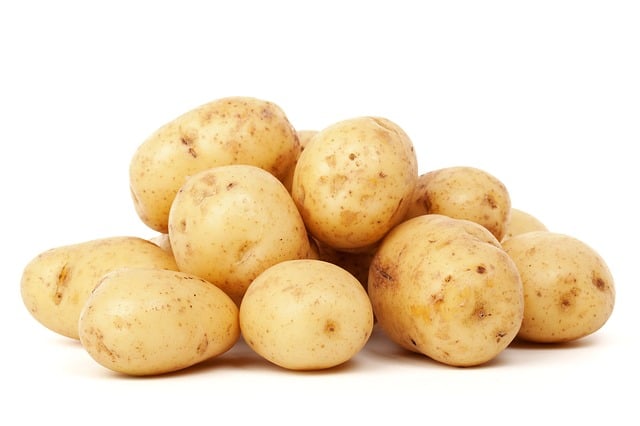Total storage holdings in Canada were up 6.5 per cent on Feb. 1 compared to the year before, but some provinces are still having to import potatoes from south of the border to keep up with processing demand.
Despite a jump in total storage holdings in Canada this winter, potato processors in Alberta and Manitoba have had to import potatoes from the United States due to a bitter harvest in those provinces.
Storage holdings in Canada were up 6.5 per cent on Feb. 1 from a year previously, according to figures released by Agriculture and Agri-Food Canada.
In Manitoba, storage holdings were up four per cent while Alberta saw a 3.7 per cent increase from the same time in 2019.
While storage holdings are up in Manitoba and Alberta, there’s still insufficient supply to meet the increased demand that’s resulted from processing expansions in both provinces, according to Kevin MacIsaac, general manager of United Potato Growers of Canada.
“There’s slightly more potatoes in Alberta than last year in terms of the holdings, but it’s not really enough,” MacIsaac told Spud Smart after the February holdings figures were released.

Both Alberta and Manitoba experienced challenging harvest conditions in many areas which led to thousands of potato acres being left in the fields in 2019 (about 13,000 acres in Manitoba and almost 4,000 acres in Alberta).
The result, says MacIsaac, is both provinces are now having to rely on imported potatoes from Idaho and Washington state to fulfill processing requirements until the end of the storage season.
In the rest of the country, storage holdings numbers were higher in every province except for British Columbia,which had close to 20 per cent fewer potatoes in the bin on Feb. 1 than at the same time last year.
MacIsaac notes potatoes have been moving at a snappy pace in B.C.
“There’s good demand for their crop and the volume’s been good going to market, so they’ve reduced their holdings substantially compared to a year ago,” he says.
Up 12.6 per cent from the same period in 2019, Prince Edward Island saw the biggest increase in storage holdings, followed by Quebec with an 11.1 per cent increase. Ontario had a 4.5 per cent increase in storage holdings while in New Brunswick, storage holdings went up 2.8 per cent.
MacIsaac notes P.E.I. had to import potatoes during the last storage season to keep up with processing demand, but that’s not the case this year.
MacIsaac says regional storage holdings figures have been generally higher this winter than last because there were fewer potatoes going into the bin in 2018 due to poor harvesting conditions in many parts of Canada that year.
South of the border, figures released by the United States Department of Agriculture show Feb. 1 potato stocks in the 13 major potato producing states at just over 204 million hundredweight — four per cent less than last year.
MacIsaac predicts there will be more early potatoes planted this year than in 2019 in both Canada and the U.S.
“Because of the shortness in availability, I think processing companies will be encouraging their growers to plant significant volumes of early varieties that can be ready earlier in the season,” he says. “This is especially significant in the Pacific Northwest region of the U.S.”
Seed Potatoes
There were just under 10,000 hundredweight of seed potatoes in storage nationally on Feb. 1, a nine per cent increase from seed storage holdings at the same time last year.
“A big part of that seed increase came from Alberta’s production this year. They had a very good crop and also some increased acres,” says MacIsaac.
He notes the seed potato market in Canada has been extremely active in the early weeks of 2020.
“A lot of that seed in Alberta has been booked, and certainly movement to date is ahead of what would be considered normal for their seed crop. Growers are booking their seed earlier and moving their seed earlier as well,” MacIsaac says.
“Buyers who have booked that seed supply want to ensure it’s actually delivered, because sometimes when the market is active like this, you can end up being shorted if you don’t do it early enough.”











